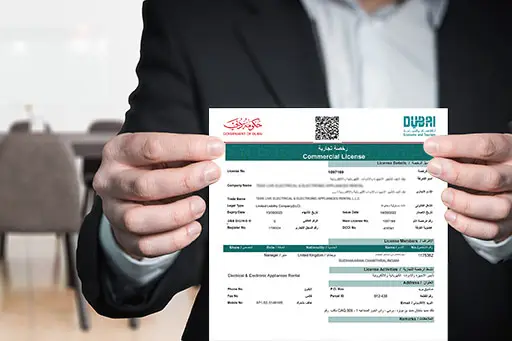Introduction
Dubai has transformed itself into one of the world’s most important hubs for trade, finance, and entrepreneurship. Every year, thousands of companies from across the globe establish a presence in the city to take advantage of its strategic location, world-class infrastructure, and pro-business policies. One of the most common routes international businesses take is setting up a foreign company branch in Dubai.
A branch office allows you to extend your existing business into the UAE while keeping it tied legally and financially to your parent company. Unlike a subsidiary or a newly formed company, a branch is not an independent legal entity. It operates as part of your existing organization and conducts business under the same name, but within the framework of UAE regulations.
In this article, we will break down everything you need to know about opening a foreign company branch in Dubai. From the legal process and documentation to benefits, challenges, and estimated costs, this will serve as a complete guide for decision-makers exploring expansion into the UAE.
What is a Foreign Company Branch in Dubai?
A foreign company branch is an extension of a parent company registered outside the UAE. The branch operates under the same name, engages in the same business activities, and is wholly owned by the parent entity. Unlike some free zone setups where ownership restrictions may apply, a branch in Dubai allows you to maintain 100% ownership while operating legally within the Emirates.
Key Characteristics of a Branch Office:
- Not a separate entity: The branch is part of the parent company and does not have independent legal personality.
- Same activities: The branch can only carry out the same commercial activities as the parent company.
- Full liability: The parent company remains responsible for all obligations and liabilities of the branch.
- Local service agent requirement: To set up a branch in mainland Dubai, a UAE national or a company fully owned by UAE nationals must be appointed as a local service agent (LSA).
- Commercial scope: Depending on the license, a branch can import, export, sell goods, provide services, or act as a representative office.

Why Open a Branch in Dubai?
Before diving into the steps, it is important to understand why so many global businesses choose to open branches in Dubai.
1. Strategic Location
Dubai sits at the crossroads of Europe, Asia, and Africa, giving businesses access to over 2 billion consumers in less than a four-hour flight radius.
2. Tax Advantages
The UAE offers a highly competitive tax environment. While corporate tax has been introduced at 9 percent above a certain profit threshold, there is no personal income tax, no capital gains tax, and no withholding tax.
3. Business Environment
Dubai ranks consistently high on global ease-of-doing-business indices. The government provides strong investor protection, efficient legal systems, and transparent regulations.
4. 100% Ownership and Control
Unlike traditional mainland company structures that required local ownership, a foreign branch allows the parent company to retain complete ownership.
5. Reputation and Market Trust
Having a licensed office in Dubai builds credibility with clients, suppliers, and investors in the Middle East and beyond.
Types of Branches in Dubai
When setting up in Dubai, companies can choose between several types of branch structures depending on their objectives.
1. Branch of a Foreign Company
This is the standard model where the foreign company extends its operations into Dubai under the same trade name and engages in commercial activities.
2. Representative Office
A representative office has limited functions compared to a branch. It cannot engage in profit-generating activities but may conduct marketing, research, and liaison functions on behalf of the parent company.
3. Free Zone Branch
Foreign companies can also set up branch offices within Dubai’s many free zones. A free zone branch enjoys benefits such as zero import duties, simplified customs processes, and 100% foreign ownership without requiring a local service agent. However, business activities are limited within the free zone or to overseas clients, unless a distributor is appointed for mainland trade.

Step-by-Step Guide: How to Open a Foreign Company Branch in Dubai
Opening a branch office involves multiple stages and government approvals. Below is a practical step-by-step process.
Step 1: Determine Business Activity
The branch can only carry out activities that the parent company is licensed for in its home country. Ensure the business activity you want to pursue is permitted in Dubai.
Step 2: Choose the Location – Mainland vs Free Zone
- Mainland Dubai: Offers full access to the local UAE market. Requires a local service agent but gives the branch broader commercial reach.
- Free Zone: Allows 100% foreign ownership and often comes with cost benefits. However, trading within the mainland is restricted unless a local distributor is appointed.
Step 3: Appoint a Local Service Agent (for Mainland Branch)
In mainland Dubai, you must appoint a UAE national or a company owned by UAE nationals as your local service agent. The LSA does not have ownership rights in your business but assists with government approvals, visas, and other local requirements.
Step 4: Apply for Initial Approval from the Ministry of Economy
The Ministry of Economy (MOE) oversees the licensing of foreign branches. You must submit an application along with:
- Parent company’s incorporation documents
- Board resolution approving the branch
- Power of attorney for the branch manager
- Copies of shareholder passports
- Parent company’s certificate of good standing
Step 5: Register with the Department of Economic Development (DED)
Once MOE approval is secured, you must register the branch with Dubai’s Department of Economic Development. The DED will issue the commercial license allowing you to legally operate.
Step 6: Notarize and Legalize Documents
Foreign documents must be notarized in the country of origin and attested by the UAE embassy. Upon arrival in Dubai, they must also be legalized by the Ministry of Foreign Affairs and translated into Arabic.
Step 7: Open a Corporate Bank Account
With your license issued, you can open a corporate bank account in Dubai. Most banks will require the parent company’s financial statements, trade license, and details of the branch manager.
Step 8: Lease Office Space
You must secure a physical office address, which will be required during the licensing process. Many free zones provide flexible office solutions such as flexi-desks or shared spaces.
Step 9: Obtain Visas and Labor Approvals
Finally, apply for establishment cards and visas for employees through the Ministry of Human Resources and Emiratisation.
Documentation Required
To successfully establish a branch, you must prepare and submit a wide set of documents. These typically include:
- Parent company certificate of incorporation
- Memorandum and Articles of Association
- Board resolution approving the Dubai branch
- Power of attorney for branch manager
- Passport copies of shareholders and branch manager
- Lease agreement for office premises
- Proof of financial statements (last 2 years audited accounts may be required)
Timeline for Setting Up a Branch
The process can take anywhere between 6 to 12 weeks, depending on approvals, document attestation, and whether you are establishing in the mainland or a free zone. Free zones are generally faster, while mainland branches involve more coordination with federal ministries.

Costs Involved
The cost of opening a foreign branch in Dubai varies significantly based on location, business activity, and office space. Typical expenses include:
- Government fees: AED 20,000 – AED 30,000
- Ministry of Economy registration fee: AED 15,000 – AED 20,000
- Local service agent fee: AED 8,000 – AED 20,000 annually (for mainland)
- Office rent: AED 20,000 – AED 50,000 depending on size and location
- Miscellaneous costs (notarization, translation, attestation, etc.): AED 5,000 – AED 10,000
Overall, companies should budget AED 70,000 – AED 120,000 for the complete process.
Benefits of Opening a Foreign Branch in Dubai
Direct Access to UAE Market
A mainland branch allows you to contract with local companies and government entities directly.
Retain 100% Ownership
Your parent company retains complete control over the branch without needing to share equity with a local partner.
Global Brand Extension
Operating under the same name strengthens brand consistency across markets.
Talent Access
Dubai provides access to a skilled and diverse workforce, making it easier to staff your branch.
Banking and Finance Hub
Having a registered branch allows you to open corporate accounts, access financing, and integrate into the UAE’s robust banking system.
Challenges to Consider
While Dubai is highly business-friendly, there are some challenges foreign companies should prepare for:
- Compliance and Reporting – Branches are subject to UAE’s compliance requirements including VAT registration and corporate tax.
- Local Service Agent Costs – Although the LSA has no ownership, their annual fees add to operating expenses.
- Limited Autonomy – The branch cannot engage in activities outside the scope of the parent company.
- Document Legalization – The attestation and translation requirements can be time-consuming and costly.
- Bank Account Opening – Banks in Dubai have become more stringent with compliance checks, which may delay account opening.

Corporate Tax and VAT Considerations
Corporate Tax
Branches of foreign companies are subject to UAE corporate tax rules. Profits above the AED 375,000 threshold are taxed at 9 percent. Some exemptions may apply depending on whether the branch operates in a free zone and meets qualifying criteria.
VAT
If the branch generates more than AED 375,000 in taxable supplies annually, VAT registration is mandatory. The current VAT rate in the UAE is 5 percent.
Common Mistakes to Avoid
- Choosing the wrong structure: Some companies mistakenly open a representative office when they intend to trade, only to realize it cannot generate revenue.
- Underestimating costs: Many businesses budget only for licensing fees and forget about office rent, staff visas, and compliance costs.
- Poor document preparation: Missing attestation or improper Arabic translations can delay the process significantly.
- Ignoring tax compliance: Not registering for VAT or corporate tax can lead to penalties.
FAQs
Can a foreign branch own property in Dubai?
Yes, a branch can lease office premises. Ownership of real estate depends on the designated freehold areas.
Do I need a UAE partner for a branch?
No, you do not need a partner. You only need a local service agent if establishing in mainland Dubai.
Can a branch remit profits abroad?
Yes, there are no restrictions on repatriation of profits from Dubai.
How long is the license valid?
Licenses are typically valid for one year and must be renewed annually.

Conclusion
Opening a foreign company branch in Dubai is a powerful way to expand into one of the world’s most dynamic markets. With 100 percent ownership, strong brand continuity, and access to the UAE economy, it provides a strategic advantage for international businesses. However, the process requires careful planning, correct documentation, and compliance with local regulations.
Companies should weigh the choice between mainland and free zone setups, budget accurately for all costs, and engage professional support to ensure a smooth setup. For global firms serious about entering the Middle East, a branch office in Dubai is often the ideal solution.








